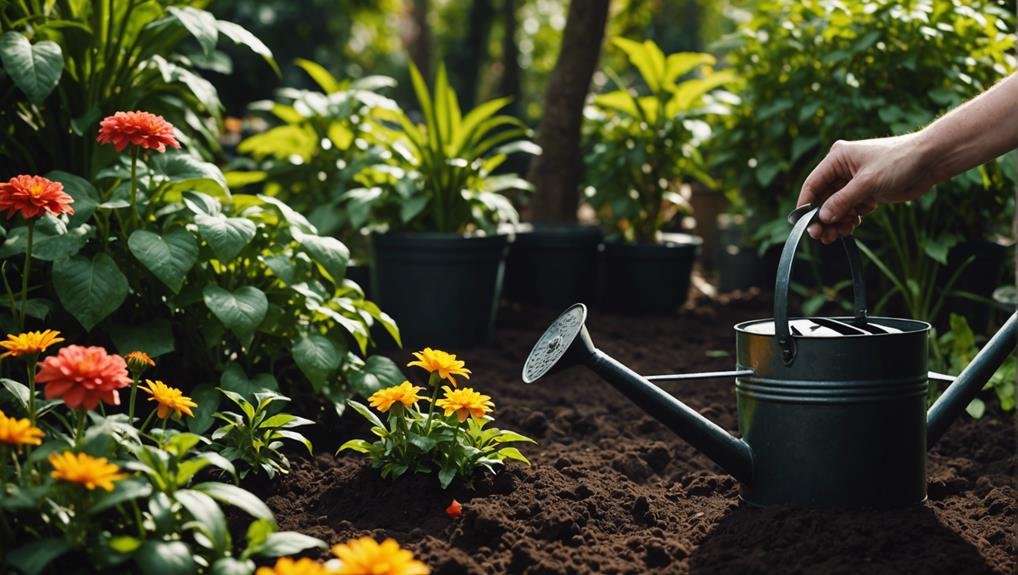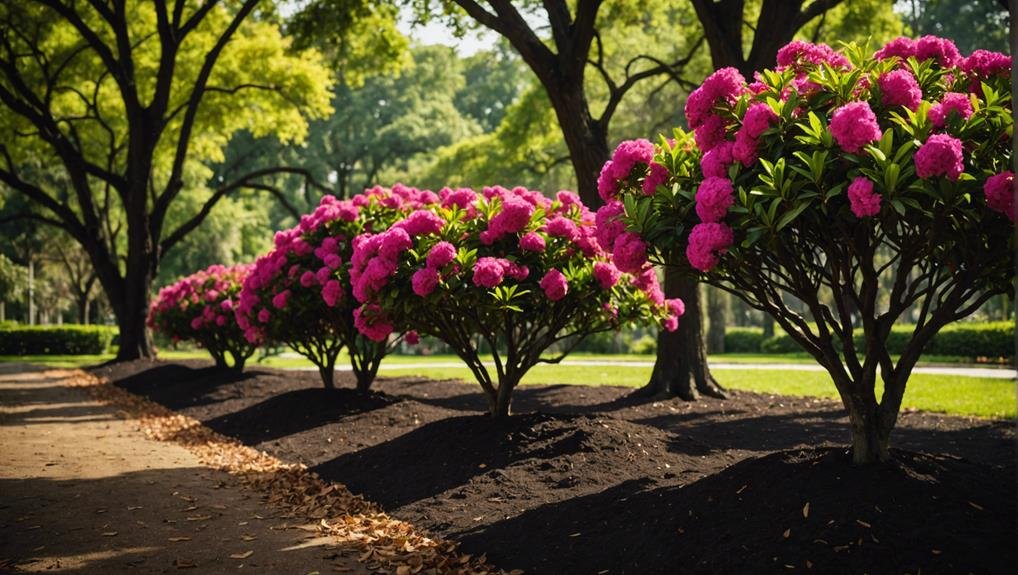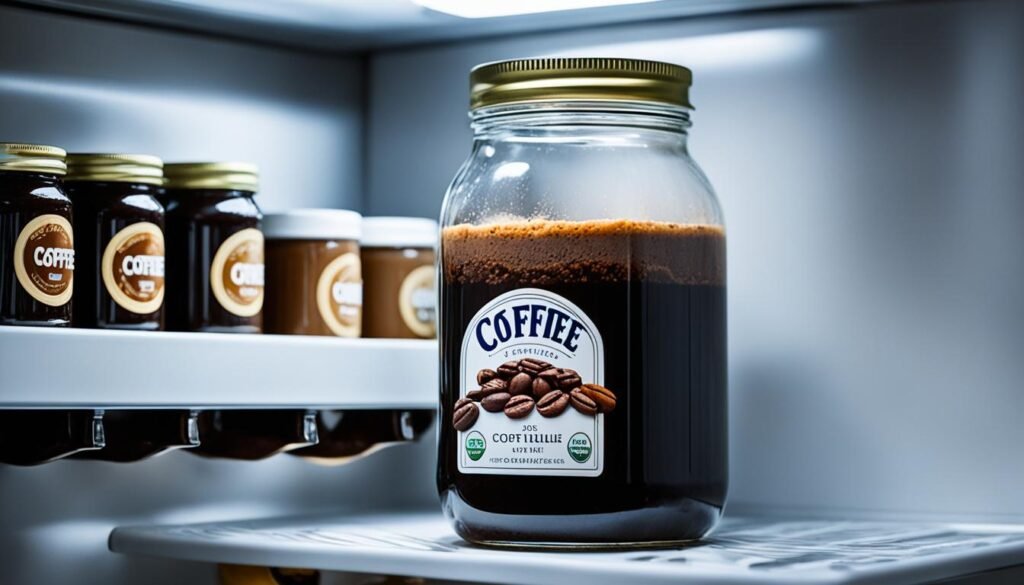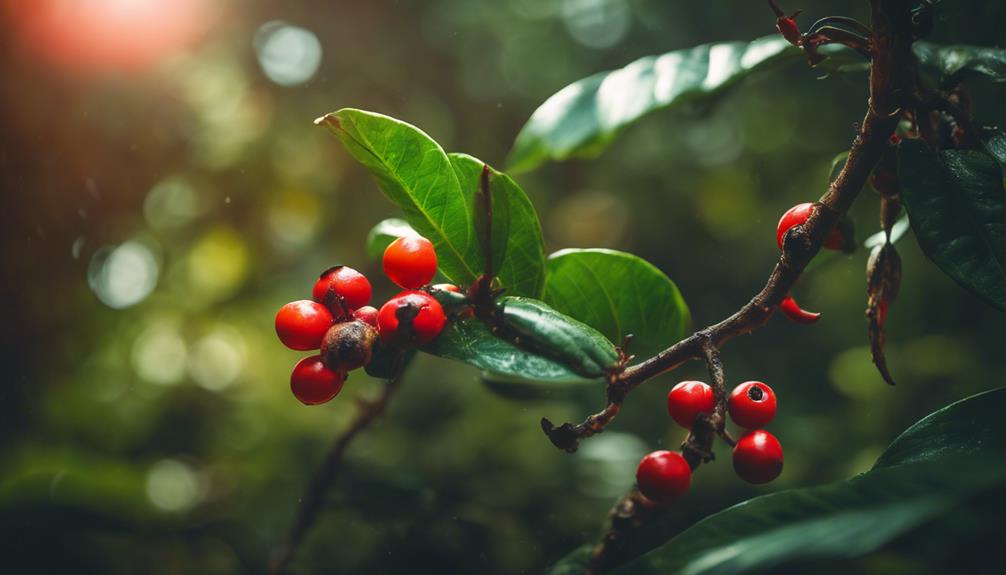Using coffee grounds in your garden can help plants grow well and produce beautiful blooms. The high nitrogen content in coffee grounds supports important plant processes like photosynthesis and protein synthesis.
Additionally, the potassium and phosphorus in coffee grounds can enhance soil structure, water retention, and aeration, benefiting plant growth. However, it's crucial to be mindful of the natural acidity and caffeine in coffee grounds, as they can impact soil pH and potentially harm certain plants if used improperly.
To make the most of coffee grounds, mix them with compost and blend them into the topsoil. While coffee grounds can be beneficial for plants like peonies and crepe myrtles, it's important to use them in moderation to avoid any negative effects.
By incorporating coffee grounds into your gardening practices, you can optimize your garden's potential for vibrant and healthy blooms.
Benefits of Coffee Grounds
Coffee grounds provide valuable benefits for enriching soil. Their high nitrogen content is essential for plant growth, aiding in photosynthesis and protein synthesis. This nutrient helps maintain the green hue of leaves and promotes robust plant development.
Moreover, coffee grounds contain potassium and phosphorus, enriching the soil and enhancing its overall health. These nutrients improve soil structure, boosting water retention and aeration. By incorporating coffee grounds into the soil, beneficial microorganisms thrive, creating a fertile environment.
Utilizing coffee grounds is a sustainable and effective method to enhance soil quality for a variety of plants.
Potential Drawbacks
Additionally, incorporating coffee grounds into soil may introduce high levels of caffeine and acidity, which could be unsuitable for certain plants. While the nitrogen in coffee grounds can be beneficial, the caffeine present may have adverse effects, such as stunted growth or plant death.
Moreover, the acidic nature of coffee grounds, with a pH range of 4.8-5.10, could disrupt the soil's pH balance, negatively impacting plants that thrive in neutral to alkaline conditions. Excessive use of coffee grounds may also result in soil compaction, reducing aeration and water infiltration.
Gardeners should proceed with caution and consider their plant's specific needs before using coffee grounds in their soil.
Best Practices for Use

When using coffee grounds in your garden, it's important to follow some best practices to optimize their benefits and minimize any potential issues. Start by using them sparingly to prevent soil acidity from becoming too high.
Mix the grounds with compost or other organic materials to balance the pH levels and nutrients in the soil. Instead of just sprinkling the grounds on the surface, work them into the top few inches of the soil for better decomposition.
Rinse used coffee grounds to reduce caffeine content before using them in the garden. Keep an eye on the soil pH levels regularly to ensure they match the needs of your plants, adjusting as needed for ideal growing conditions.
Coffee Grounds for Peonies
Adding coffee grounds to the soil can greatly benefit peonies by providing essential nitrogen for their growth. Nitrogen is crucial for promoting healthy foliage and vibrant blooms.
When sprinkled around the base of peonies, coffee grounds enrich the soil, improving its texture and fertility. This organic matter not only helps retain water but also promotes beneficial microorganisms, creating a healthier growing environment.
It's important to use coffee grounds sparingly to prevent excessive acidity, which can harm the plants. Combining coffee grounds with other compost materials can balance pH levels, ensuring peonies receive the necessary nutrients without the risk of soil becoming too acidic.
Coffee Grounds for Crepe Myrtles

Using coffee grounds can significantly improve the soil quality for crepe myrtles, providing essential nutrients and supporting healthy growth.
Coffee grounds are rich in nitrogen, which helps make the soil fertile and enhances the development of crepe myrtles.
When applied around the base of the plant, these grounds help retain moisture, ensuring that the roots stay hydrated.
The slight acidity of coffee grounds can also be beneficial, as crepe myrtles thrive in slightly acidic conditions.
However, it's important to balance the soil's pH by adding compost to prevent excessive acidity.
The key is moderation; applying thin layers of coffee grounds periodically can lead to vibrant and healthy crepe myrtles.
Conclusion
In conclusion, while coffee grounds offer benefits like enriching soil and providing essential nutrients, their use requires careful consideration due to potential drawbacks such as high caffeine content and acidity.
By composting and choosing plants that are compatible, these issues can be managed effectively.
Peonies and crepe myrtles show varying tolerances to coffee grounds, so tailored approaches are needed to optimize their growth and health.
Balancing the advantages and disadvantages ensures the successful use of coffee grounds in gardening.












